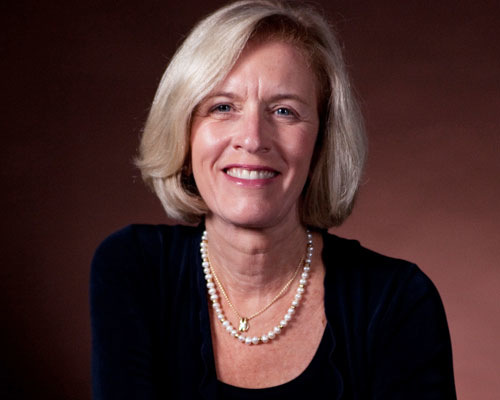As one of the principal investigators with the NICHD Study of Early Child Care and Youth Development, Vandell has followed the development of more than thirteen hundred children from birth through high school. This work identified both short-term and long-term effects of afterschool programs on youth outcomes. Other longitudinal research conducted by Vandell has focused on the effects of afterschool programs, extracurricular activities, and unsupervised time on low-income children of color, including English Learners. Her research underscores the importance of out-of-school time as a key factor in child and adolescent success at school and has an effective strategy for reducing the achievement gap.
Drawing on the findings of her research, Vandell recently developed the Afterschool Outcomes Online Toolbox that is being used by the State of California to assess youth outcomes and program quality in more than one thousand afterschool programs. Programs use the Online Toolbox to collect data about skill development and positive behaviors from classroom teachers, program staff, and the youth themselves. A second version of the Online Toolbox assesses science, technology, engineering, and mathematics (STEM) learning afterschool.
Vandell started her career as an elementary school teacher after earning her master's degree in education at Harvard University. She later received a Ph.D. in psychology from Boston University. She is a member of the National Academy of Education and sits on the Governing Council of the Society for Research in Child Development. She is Fellow of the American Education Research Association, the American Psychological Association, and the American Psychological Society. Her testimony before the U.S. Congress and other federal, state, and local governmental bodies has been used to inform policy decisions in early childhood and afterschool programming.
What are the accomplishments you are most proud of?
It has been most exciting and gratifying for me to see afterschool become recognized by educators, policy makers, and parents as an important contributor to children's learning and development. When I first began studying afterschool programs thirty years ago, there was virtually no awareness of the role that afterschool programs can play in children's development. I like to think that my research has contributed to this awareness. To see that awareness translated into an increase in the number of children who are now being served by afterschool programs is something that I am especially proud of.
Where do you see the field in ten years?
In ten years, I believe afterschool will be more closely aligned and connected to other forms of organized activities that also occur during the out-of-school hours. We will see, I think, a breaking down of the silos that currently separate afterschool programs from summer programs from informal learning settings offered by museums from youth clubs like 4-H. Researchers and practitioners who work in these different spaces are beginning to talk and to realize their many commonalities and shared interests. The afterschool field will be stronger as a result of these conversations and collaborations.
What are the biggest opportunities for the afterschool industry?
I think that a more integrated approach to organized activities—one in which afterschool programs, summer programs, youth clubs, museums, and other organizations work together to meet the needs of youth people—has great potential for expanding the scope and reach of the afterschool industry.
What are the biggest challenges facing afterschool?
As the number of afterschool programs expands, we need to work to ensure that these programs are high-quality. We know that a key to program quality is a great staff—staff who have strong, supportive relationships with students; staff who foster positive relationships among the youth; and staff who are knowledgeable and able to design activities that engage young people's interests. So, I think our greatest challenge is the development of strong afterschool professionals at all levels—from line staff, to site leaders, to program leaders, to system leaders.
What makes an afterschool program successful?
This is a big question! At one level, what makes programs successful is having great staff and great leadership. At another level, we can ask about what kinds of external supports that programs need to succeed. Here, research underscores the importance of partnerships with families, schools, and communities as factors contributing to program success.
Edited by Amy L Charles, editorial director of AfterSchool Today magazine, the Official Publication of the National AfterSchool Association.
Photo courtesy of Nicole Del Castillo.

